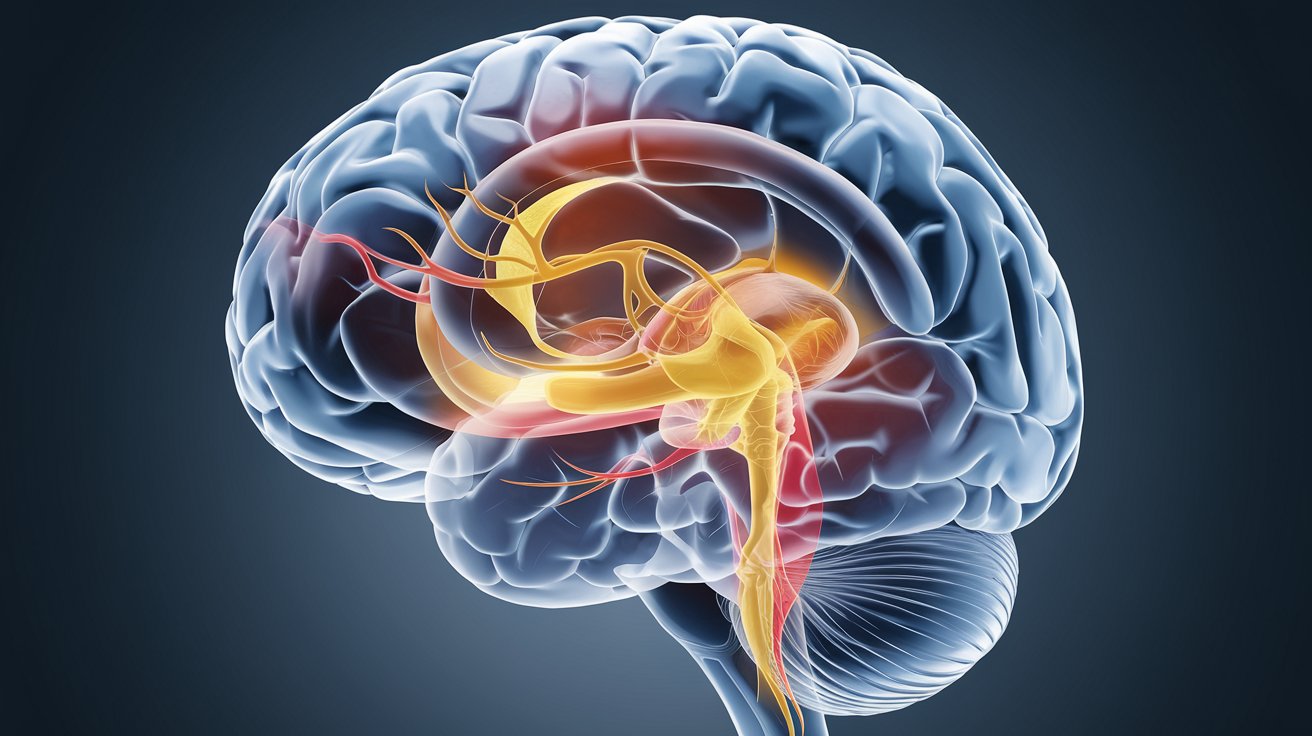
Myoclonus Cerebellar Ataxia Deafness (MCD) is a rare genetic disorder that affects movement, balance, and hearing. This condition combines three main symptoms: myoclonus (sudden muscle jerks), cerebellar ataxia (lack of muscle coordination), and deafness. MCD is caused by mutations in specific genes, leading to progressive neurological decline. Individuals with this disorder often experience difficulty walking, frequent falls, and hearing loss. Diagnosing MCD involves genetic testing, neurological exams, and hearing assessments. While there is no cure, treatments focus on managing symptoms and improving quality of life. Understanding MCD can help those affected and their families navigate the challenges it presents. Let's dive into 25 intriguing facts about this complex condition.
Key Takeaways:
- Myoclonus Cerebellar Ataxia Deafness (MCA-D) is a rare genetic disorder causing muscle jerks, coordination issues, and progressive hearing loss. Genetic testing and support groups are crucial for managing this condition.
- Living with MCA-D requires adjustments like physical therapy, hearing aids, and joining support groups. Ongoing research offers hope for potential treatments through gene therapy and stem cell research.
Understanding Myoclonus Cerebellar Ataxia Deafness
Myoclonus Cerebellar Ataxia Deafness (MCA-D) is a rare genetic disorder. It affects movement, balance, and hearing. Here are some intriguing facts about this condition.
-
Genetic Origin: MCA-D is caused by mutations in the ELOVL4 gene. This gene is crucial for producing very long-chain fatty acids.
-
Inheritance Pattern: The disorder follows an autosomal dominant pattern. This means one copy of the altered gene is enough to cause the condition.
-
Symptoms Onset: Symptoms usually appear in early adulthood. However, they can start as early as childhood or as late as middle age.
-
Myoclonus: Myoclonus refers to sudden, involuntary muscle jerks. These jerks can affect any part of the body.
-
Cerebellar Ataxia: This symptom involves a lack of muscle coordination. It can lead to unsteady walking, clumsiness, and difficulty with fine motor tasks.
-
Hearing Loss: Progressive hearing loss is a hallmark of MCA-D. It often starts with high-frequency sounds and worsens over time.
Diagnosing MCA-D
Diagnosing MCA-D can be challenging due to its rarity. However, several methods help identify the condition.
-
Genetic Testing: Genetic tests can confirm the presence of ELOVL4 mutations. This is the most definitive way to diagnose MCA-D.
-
Neurological Exams: Doctors perform these exams to assess muscle coordination and reflexes. They help identify cerebellar ataxia and myoclonus.
-
Hearing Tests: Audiograms measure hearing loss. They can track the progression of deafness in MCA-D patients.
-
MRI Scans: MRI scans of the brain can show cerebellar atrophy. This is a common feature in individuals with MCA-D.
Living with MCA-D
Living with MCA-D requires adjustments and support. Here are some aspects of managing the condition.
-
Physical Therapy: Physical therapy helps improve balance and coordination. It can also reduce the risk of falls.
-
Hearing Aids: Hearing aids can enhance hearing for those with MCA-D. They are especially useful in the early stages of hearing loss.
-
Medications: Certain medications can help control myoclonus. These include anticonvulsants and muscle relaxants.
-
Support Groups: Joining support groups can provide emotional support. Connecting with others facing similar challenges can be comforting.
-
Assistive Devices: Devices like canes or walkers can aid mobility. They help individuals maintain independence.
Research and Future Directions
Ongoing research aims to better understand MCA-D. Scientists are exploring new treatments and interventions.
-
Gene Therapy: Researchers are investigating gene therapy as a potential treatment. This approach aims to correct the underlying genetic mutation.
-
Stem Cell Research: Stem cell therapy holds promise for regenerating damaged tissues. It could potentially reverse some symptoms of MCA-D.
-
Clinical Trials: Clinical trials are testing new drugs and therapies. Participation in these trials can provide access to cutting-edge treatments.
-
Biomarkers: Scientists are searching for biomarkers to aid early diagnosis. These could help identify MCA-D before symptoms appear.
-
Patient Registries: Patient registries collect data on individuals with MCA-D. This information helps researchers understand the condition better.
Impact on Daily Life
MCA-D affects various aspects of daily life. Understanding these impacts can help in managing the condition.
-
Employment: Individuals with MCA-D may need workplace accommodations. Flexible hours and modified duties can help them continue working.
-
Education: Students with MCA-D might require special education services. These can include individualized learning plans and assistive technology.
-
Social Life: Social interactions can be challenging due to hearing loss and mobility issues. Supportive friends and family play a crucial role.
-
Mental Health: Living with a chronic condition can impact mental health. Counseling and therapy can provide coping strategies.
-
Family Planning: Genetic counseling can help families understand the risks of passing MCA-D to future generations.
Final Thoughts on Myoclonus Cerebellar Ataxia Deafness
Understanding Myoclonus Cerebellar Ataxia Deafness (MCD) can be challenging, but knowing the facts helps. This rare genetic disorder affects movement, balance, and hearing. Symptoms often start in childhood and can progress over time. Early diagnosis and intervention are crucial for managing the condition. Treatments focus on alleviating symptoms and improving quality of life. Genetic counseling is recommended for families affected by MCD. Research continues to explore new therapies and potential cures. Staying informed and connected with support groups can make a significant difference. Remember, while MCD is rare, you're not alone in facing it. Knowledge empowers, and with the right resources, individuals with MCD can lead fulfilling lives.
Frequently Asked Questions
Was this page helpful?
Our commitment to delivering trustworthy and engaging content is at the heart of what we do. Each fact on our site is contributed by real users like you, bringing a wealth of diverse insights and information. To ensure the highest standards of accuracy and reliability, our dedicated editors meticulously review each submission. This process guarantees that the facts we share are not only fascinating but also credible. Trust in our commitment to quality and authenticity as you explore and learn with us.
